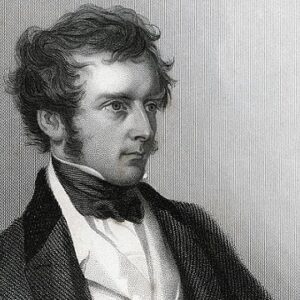For ages, the British upper class with tight ties to the establishment has developed a plethora of societal pillars, and this trend continues today. They make up a sizable portion of parliament, banking, law, business, and a variety of other professions, and they have proven to be exceptionally adept at building a reputation for themselves regardless of their job. In this regard, Charles Pelham Villiers, a former British Member of Parliament, deserves special attention for being one of the most well-known public figures in Britain during his lifetime, and it is fair to assume that those who are aware of his accomplishments perceive him as a keen parliamentarian. He held numerous key positions during his long career as a Member of Parliament, in addition to being one of the most powerful legislators of the time. It’s worth noting, though, that he was a well-known barrister by profession and a well-known personality in British legal circles throughout his life. Last but not least, it’s worth mentioning that he was one of the most influential liberal voices of his day.
Childhood and Adolescence
On January 3, 1802, in London, United Kingdom, Charles Pelham Villiers was born to Hon. George Villiers and Hon. Theresa Villiers. His father was a statesman and politician.
Lord Canning was a frequent visitor to the Villiers’ enormous mansion, and the young Charles Pelham Villiers became interested in politics and statecraft after listening to his father’s debates with political heavyweights of the day.
Charles Pelham Villiers attended the East India Company College, also known as Haileybury College, as a kid, where he was taught by some of the great minds of the day, including Thomas Malthus.
Villiers enrolled at St. John’s College, Cambridge University, when he was 19 years old, and graduated with a bachelor’s degree and a master’s degree six years later. In the same year, he was admitted as a barrister to Lincoln’s Inn.
The Career of Villiers
Villiers began his career as a barrister in London in 1827 and immediately established himself as a prominent figure in the city. He was named Commissioner of the Poor Law five years later, one of the British Government’s most important social initiatives at the time.
Charles Pelham Villiers became the Examiner of Witnesses in the Court of Chancery in 1833. The Court of Chancery was a foundation of the British legal system, and it was frequently thought to be more powerful than other courts. He was in charge for 19 years.
Villiers accepted an invitation from the Liberal Party in the United Kingdom to run for the seat of Wolverhampton in 1834, and he accepted without hesitation.
He was elected as a Member of Parliament for Wolverhampton the following year. He would go on to occupy that seat for a total of 63 years, making him the longest-serving member of Parliament in British history.
Charles Pelham Villiers had long advocated for more liberal trade regulations that would stimulate greater industry, and he had initiated a decade-long fight against England’s restrictive Corn Laws. The campaign peaked in 1845, with the statute being abolished the following year.
In his capacity as a politician, he served in some of the most powerful institutions in British politics. He was inducted into the Privy Council in 1853, after being appointed as Judge Advocate General a year before. He was in charge of the latter position for SIX years.
In 1859, Charles Pelham Villiers was appointed President of the Poor Law Board, a cabinet position that needless to say, gave him considerable clout in the halls of power.
Charles Pelham Villiers was named Father of the House of Commons in 1890, at the age of 88, after serving in the position for seven years. It’s a designation given to Members of Parliament who are either the oldest or the longest-serving in the chamber.
Villiers’s Major Projects
As a Member of Parliament, Charles Pelham Villiers’ life’s work was to open up trade, and in that light, his protracted fight to repeal the Corn Laws must rank as his greatest achievement.
Personal History and Legacy
There is no record of Charles Pelham Villiers ever marrying or having any romantic relationships.
Charles Pelham Villiers died in his London residence on January 16, 1898, at the age of 96.
Villiers managed to win an election at the ripe old age of 93, which still retains the record for the oldest person to
ever win an election, as well as the record for the longest-serving member of Parliament in the United Kingdom.
In 1885, the British government considered Villiers for a peerage, but he declined.
Estimated Net worth
Unknown.


